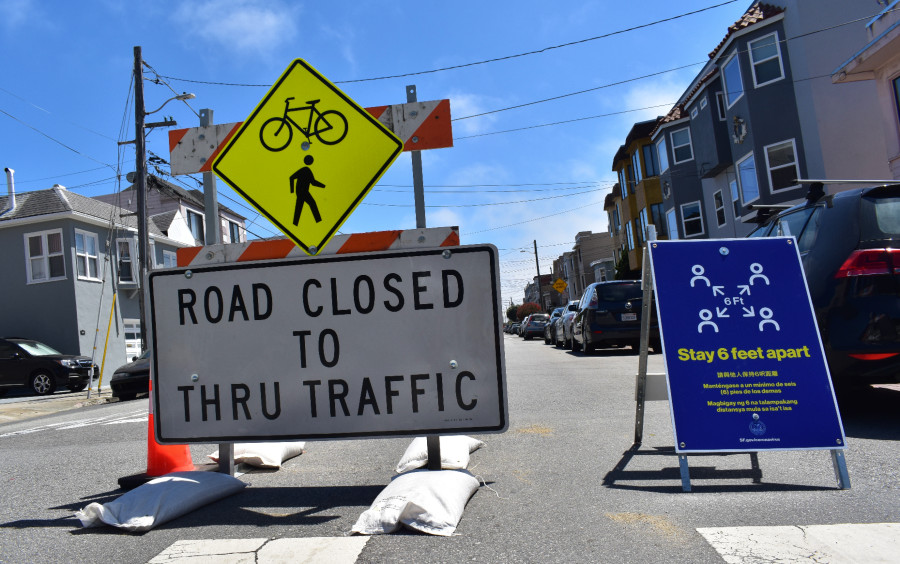Redwood City council on Monday approved a Slow Streets pilot program that will temporarily discourage vehicular traffic on certain streets during the COVID-19 shelter-in-place period. The program’s primary aim is to provide safe open spaces for residents to be physically active within their own neighborhood.
City staff’s initial proposal included installing signage that prohibits vehicles from driving through 11 streets unless absolutely necessary, such as needing to get home, visit a business, make deliveries or in emergency situations. Concerns from the community and council prompted adjustments to the initial proposal, including the removal of Poplar Street from Woodside Road to Hudson Street as a slow street in the pilot project.
Also, council allowed one lane to be closed to vehicular traffic on Bridge Parkway from Redwood Shores to Marine Parkway, rather than the initial proposal of closing one lane in each direction.
Other streets set to become Slow Streets as part of the council-approved pilot:
- Flynn Avenue, from Middlefield Road to Spring Street, .4 mi
- Stambaugh Street, from Charter Street to Maple Street, .6 mi
- Allerton Street, from Winslow Street to Whipple Avenue, .3 mi
- Vera Avenue from El Camino Real to Alameda de las Pulgas, 1.1 mi
- Ebener Street from Geneva Avenue to Roosevelt Avenue, .4 mi
- Page Street from Second Avenue to 17th Avenue, .8 mi
- Cypress Street/East Oakwood Boulevard from Woodside Road to Oakwood Avenue, .6 mi
- C Street from Stafford Street to Industrial Avenue, .3 mi
- Katherine Avenue from Elwood Street to Nevada Avenue, .6 mi
The Slow Streets program, expected to cost up to $10,000 for this initial pilot phase, is expected to be in place this weekend. City staff will conduct outreach with neighborhood associations and will report the program’s progress at the next council meeting on May 4. Similar Slow Streets programs have been approved in San Mateo, Oakland, Palo Alto and San Francisco.
Photo taken from the Slow Streets program on a San Francisco street






